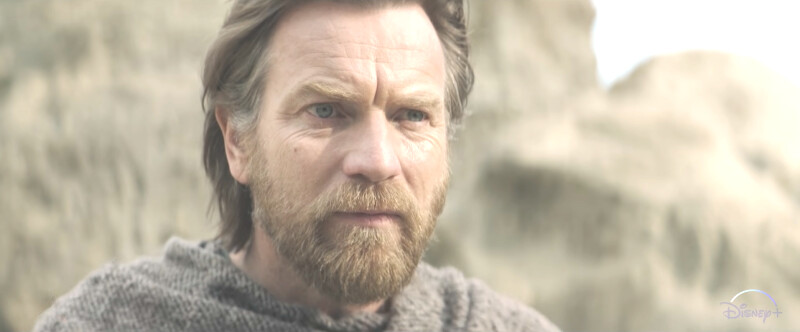From rumors that tied Yoda to Spencer W. Kimball to the Tabernacle Choir performing “Duel of the Fates,” Latter-day Saints have long been intertwined with the Star Wars universe. Perhaps it is the story’s stark contrast of good vs. evil or the familiar religious-tinged teachings of the Jedi that draw us in, but no matter what it is generally that Latter-day Saints love about Star Wars, I personally love how many gospel parallels can be found in this epic science fiction world.
With the new Obi-Wan Kenobi series releasing on Disney+, here are five times the Jedi master’s comments reminded me of things our prophet President Russell M. Nelson has counseled us about recently.
1. “Your eyes can deceive you, don’t trust them.”
An old Obi-Wan Kenobi shares this line with Luke Skywalker in Star Wars: Episode IV – A New Hope while trying to teach the teenager how to use the Force, emphasizing the need for Luke to pay more attention to his feelings.
While many of us have experienced the literal temporal implications of this quote through fabricated quote memes, deep fake videos, and other manipulated digital media, I think this bit of Jedi wisdom also applies to religious principles.
Throughout his ministry, President Nelson has emphasized the importance of receiving personal revelation and recognizing the feelings of the Spirit. He’s also recently reminded us that we often can’t see the whole picture and so we need to learn to have faith.
For example, in his 2018 general conference talk “Revelation for the Church, Revelation for Our Lives” President Nelson shared,
“One of the things the Spirit has repeatedly impressed upon my mind since my new calling as President of the Church is how willing the Lord is to reveal His mind and will. The privilege of receiving revelation is one of the greatest gifts of God to His children.
“Through the manifestations of the Holy Ghost, the Lord will assist us in all our righteous pursuits. I remember in an operating room, I have stood over a patient—unsure how to perform an unprecedented procedure—and experienced the Holy Ghost diagramming the technique in my mind.”
Just like Obi-Wan wanted Luke to learn how the Force spoke to and guided Luke in order for him to successfully combat the evil in the Empire, President Nelson has made it clear that it is important for each of us to learn to recognize how the Spirit speaks to us and guides us individually if we want to successfully navigate our life on earth.
2. “Many of the truths that we cling to depend on our point of view.”
This line is shared in Star Wars: Episode VI – Return of the Jedi, after Luke has discovered that Darth Vader is his father and wants to know why Obi-Wan told him Vader had killed his father. Obi-Wan explains that because the good man who was Luke’s father (Anakin Skywalker) was replaced by the darkness and hatred of the man he became (Darth Vader), in a way Obi-Wan had told Luke the truth.
While there could be many interpretations and applications of this quote in the context of the Church, it reminded me greatly of a quote President Nelson shared in his recent worldwide devotional for young adults. In that talk he said,
“If friends and family should step away from the Church, continue to love them. It is not for you to judge another’s choice any more than you deserve to be criticized for staying faithful.
“Now please hear me when I say: Do not be led astray by those whose doubts may be fueled by things you cannot see in their lives.”
So much of how we live, believe, and understand life is tied up in the individual collection of experiences we have. I love that both Obi-Wan’s and President Nelson’s quotes remind us that each of our personal quests for truth can have the same desire and objective but can at times lead us to different conclusions and decisions as we navigate life. I think it also reminds us why God is the only one who can judge us perfectly—because He is the only one who knows all the experiences that lead us to our conclusions about our beliefs.
▶ You may also like: 5 gospel principles ‘This Is Us’ taught beautifully over the last six seasons
3. “A great leap forward often requires first taking two steps back.”
Not all of Master Kenobi’s wisdom is found in the flagship films. In the Star Wars: The Clone Wars series, which shares side stories from the war that occurs between Star Wars: Episode II – Attack of the Clones and Star Wars: Episode III – Revenge of the Sith, Obi-Wan Kenobi’s patient and steady approach to problems is often contrasted with his student Anakin Skywalker’s headstrong and emotionally-charged reactions.
This bit of advice, which Obi-Wan shares with Anakin when the two Jedi are met with complications on a life-saving mission (“Mystery of a Thousand Moons,” season one, episode 18), might sound like just another iteration of the common phrase “One step forward, two steps back,” but I think the word “leap” is what catches my attention. It reminds me of President Nelson’s teachings about spiritual momentum in April 2022 general conference:
“Momentum is a powerful concept. We all have experienced it in one form or another—for example, in a vehicle that picks up speed or with a disagreement that suddenly turns into an argument.
“So I ask, what can ignite spiritual momentum? We have seen examples of both positive and negative momentum. We know followers of Jesus Christ who became converted and grew in their faith. But we also know of once-committed believers who fell away. Momentum can swing either way.
“We have never needed positive spiritual momentum more than we do now, to counteract the speed with which evil and the darker signs of the times are intensifying. Positive spiritual momentum will keep us moving forward amid the fear and uncertainty created by pandemics, tsunamis, volcanic eruptions, and armed hostilities. Spiritual momentum can help us withstand the relentless, wicked attacks of the adversary and thwart his efforts to erode our personal spiritual foundation.”
President Nelson teaches that positive momentum can keep us going in the right direction, overcoming fear, doubt, and anything else that might be keeping us from progressing. Similarly, Obi-Wan was trying to tell Anakin that although sometimes it may seem like our efforts to do good are being thwarted, as we take time to make a plan and keep our focus on trying to do good, our setbacks can teach us, and in some cases propel us forward far beyond where we imagined.
4. “War tends to distort our point of view. If we sacrifice our code, even for victory, we may lose that which is important for our honor.”
This philosophical comment spoken during a conversation with Anakin in Star Wars: The Clone Wars (“Citadel Rescue,” season 3 episode 20) goes hand in hand with the more familiar line from a much older Obi-Wan in Star Wars: Episode IV – A New Hope, “Don’t give in to hate. That leads to the dark side.”
Both give us a glimpse into the potentially devastating moral ramifications that come from war. The Jedi knights of Star Wars were supposed to be peacekeepers, but their long involvement in the war threw them into a position where their values were constantly being tested, doubted, mocked, or questioned both internally and externally. This often left them much more vulnerable to the vices that can thrive in war, accompanied by things like hatred, revenge, pride, greed, and fear—or it made them more apt to lose sight of their true identity and purpose as peacekeepers.
Spiritual or physical wars in our own world—can have the same results, as President Nelson shared in the April 2022 general conference:
“Any war is a horrifying violation of everything the Lord Jesus Christ stands for and teaches.
“None of us can control nations or the actions of others or even members of our own families. But we can control ourselves. My call today, dear brothers and sisters, is to end conflicts that are raging in your heart, your home, and your life. Bury any and all inclinations to hurt others—whether those inclinations be a temper, a sharp tongue, or a resentment for someone who has hurt you. The Savior commanded us to turn the other cheek, to love our enemies, and to pray for those who despitefully use us.”
Both of these quotes point out that no matter what conflict we may be involved in, true victory comes when we stay faithful to our values and do not lose sight of our spiritual identity and purpose.
5. “If you define yourself by the power to take life, the desire to dominate, to possess, then you have nothing.”
This quote comes from the third season of another Star Wars animated series, Star Wars Rebels (“Twin Suns,” season 3 episode 20), which takes place between Star Wars: Episode III - Revenge of the Sith and Star Wars: Episode IV – A New Hope IV, just as the Rebellion is emerging.
Obi-Wan, who is now living in exile on a desert planet, makes this statement to an old enemy whose entire life has been devoted to obtaining power and getting revenge on Obi-Wan. When this enemy sneers at the formerly powerful Jedi’s fallen state, Obi-Wan’s response makes it clear that he defines himself by how far he has come and how much he has overcome rather than how much he has lost.
This definition of success and Obi-Wan’s faithful response to his challenges brings to mind some important comments made by President Nelson during the recent worldwide devotional for young adults:
“If any label replaces your most important identifiers, the results can be spiritually suffocating. … We could go on and on, rehearsing the constraints of various labels that we put on ourselves, or that other people place upon us. … Any identifier that is not compatible with [“Child of God,” “Child of the Covenant,” and “Disciple of Jesus Christ”] will ultimately let you down. Other labels will disappoint you in time because they do not have the power to lead you toward eternal life in the celestial kingdom of God. Worldly identifiers will never give you a vision of who you can ultimately become. They will never affirm your divine DNA or your unlimited, divine potential.”
How we think of ourselves and define our success in life depends on what we believe about ourselves and what is most important to us. Clearly Obi-Wan—who himself lost everything when the Republic fell learned this lesson during his years in hiding on Tattooine. Similarly, President Nelson invited us to decide what is most important in our lives and drop the rest along with their harmful and hurtful labels.
Obi-Wan Kenobi may be known more for his wit than his wisdom, but he is definitely a thoughtful, wise master with insights that are applicable today. I look forward to seeing what new wisdom emerges in the Obi-Wan Kenobi series and finding more great gospel parallels!
▶ You may also like: 5 Things Severus Snape taught me about living the gospel


